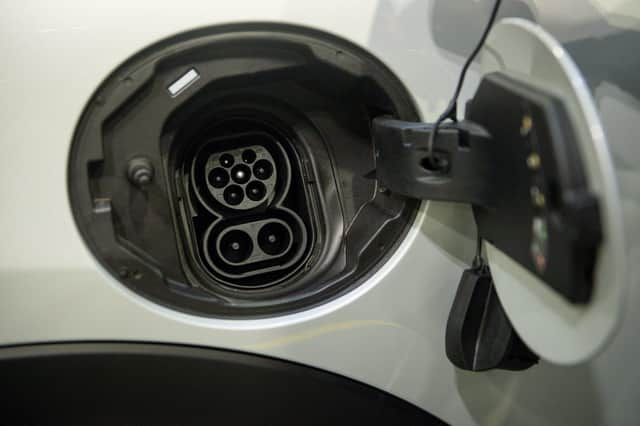Will rural Yorkshire grind to a halt in green car revolution? – David Behrens


The phone signal faded and died as I crossed the North York Moors. It didn’t return until three days later, when I drove back.
A mast went up a few months later but it took years for the technology to fully cast its net over the last nooks and crannies of our county. As recently as 2007, it remained almost impossible to make a call from Harrogate when the crowds arrived for the Great Yorkshire Show.
Advertisement
Hide AdAdvertisement
Hide AdIn those days – when we still thought an internet was something Ena Sharples wore on her head – not having access to the latest technology was merely an inconvenience. But today’s plugged-in society depends on a whole ecosystem of components, and the absence of any one of them would be intolerable. Yet, as we rush headlong into 2030, we risk cutting our lifeline to the most important one of all.
Nine years from now, the Government’s ban on the sale of new petrol and diesel cars and vans will have taken effect. Five years later, hybrid cars – those that have both electric and combustion engines – will also have been taken off sale.
In their place will be battery-only vehicles that you charge from a plughole, in much the same way as a phone. They are more environmentally-friendly than engines burning fossil fuels and therefore an attractive proposition for ecologically-concerned drivers – who will in any case have little choice in the matter.
Advertisement
Hide AdAdvertisement
Hide AdBut when you consider the practicalities, it’s hard not to conclude that the timetable has been rushed and the consequences not thought through. For the truth is that in the North and East Ridings of Yorkshire, the provision of plugholes is spread even more thinly than the population.
The Competition and Markets Authority pounced on this last week, warning that rural areas “risk being left behind” because of insufficient investment in charging, uncertainty over the reliability of such sockets that exist, and variations in their cost. It’s exactly what happened when phone masts were being erected and again when broadband began to roll out.
The outcome this time, given the limited range of most electric cars, is the real possibility that parts of the county will literally grind to a standstill.
The figures speak for themselves. London has 69 public chargers per 100,000 people, but Yorkshire has only 19, and that includes the densely populated areas around Leeds and Sheffield. Elsewhere in the county it’s a plug-in postcode lottery. In the relative backwater of the East Riding, a grand total of 10 points serve a coastal area of some 36 square miles. It takes hours, not minutes, to charge an electric car, so if we’re all going to have one, the queues at the pumps will stretch back to Bridlington.
Advertisement
Hide AdAdvertisement
Hide AdOf course, most charging takes place overnight at home – at least for those with off-street parking – and that’s fine for tootling around town. But the average electric car needs a boost after less than 200m, and in rural areas where distances are greater, those miles will soon be eaten away.
For that reason, many drivers who would happily have embraced the clean new world of battery operated vehicles will instead have to shelter behind the legislative loophole which allows cars that are already on the road to remain so, and to continue driving their dirty old diesels into the ground long past their sell-by date.
The irony of this is that East Yorkshire is supposed to be one of the main beneficiaries of the electric revolution. Some 50,000 jobs are promised for the Humber, along with Teesside, Merseyside, East Scotland and South Wales.
Advertisement
Hide AdAdvertisement
Hide AdBut those contracts of employment won’t be worth the paper they’re written on if their holders can’t drive back home at the end of the day.
It’s a question of joining the dots between Boris Johnson’s stated ambition to put Britain at the vanguard of the new green revolution, and the need to ensure that the stragglers at the back of the line can still keep up.
England’s new green and pleasant landscape cannot be one in which its towns and cities move forward while its wide open spaces are sent backwards to 1993.
Advertisement
Hide AdAdvertisement
Hide AdSupport The Yorkshire Post and become a subscriber today. Your subscription will help us to continue to bring quality news to the people of Yorkshire. In return, you’ll see fewer ads on site, get free access to our app and receive exclusive members-only offers. Click here to subscribe.
Comment Guidelines
National World encourages reader discussion on our stories. User feedback, insights and back-and-forth exchanges add a rich layer of context to reporting. Please review our Community Guidelines before commenting.